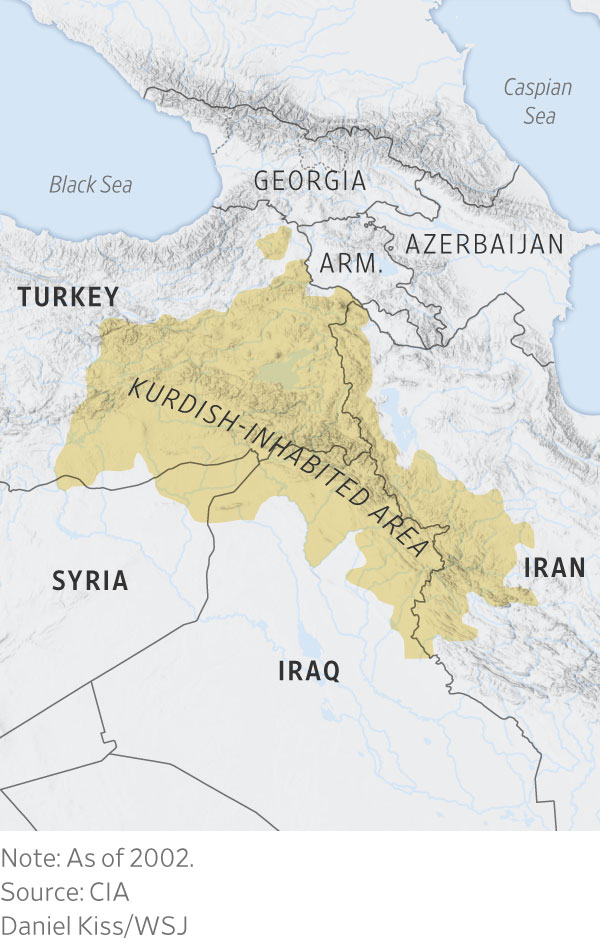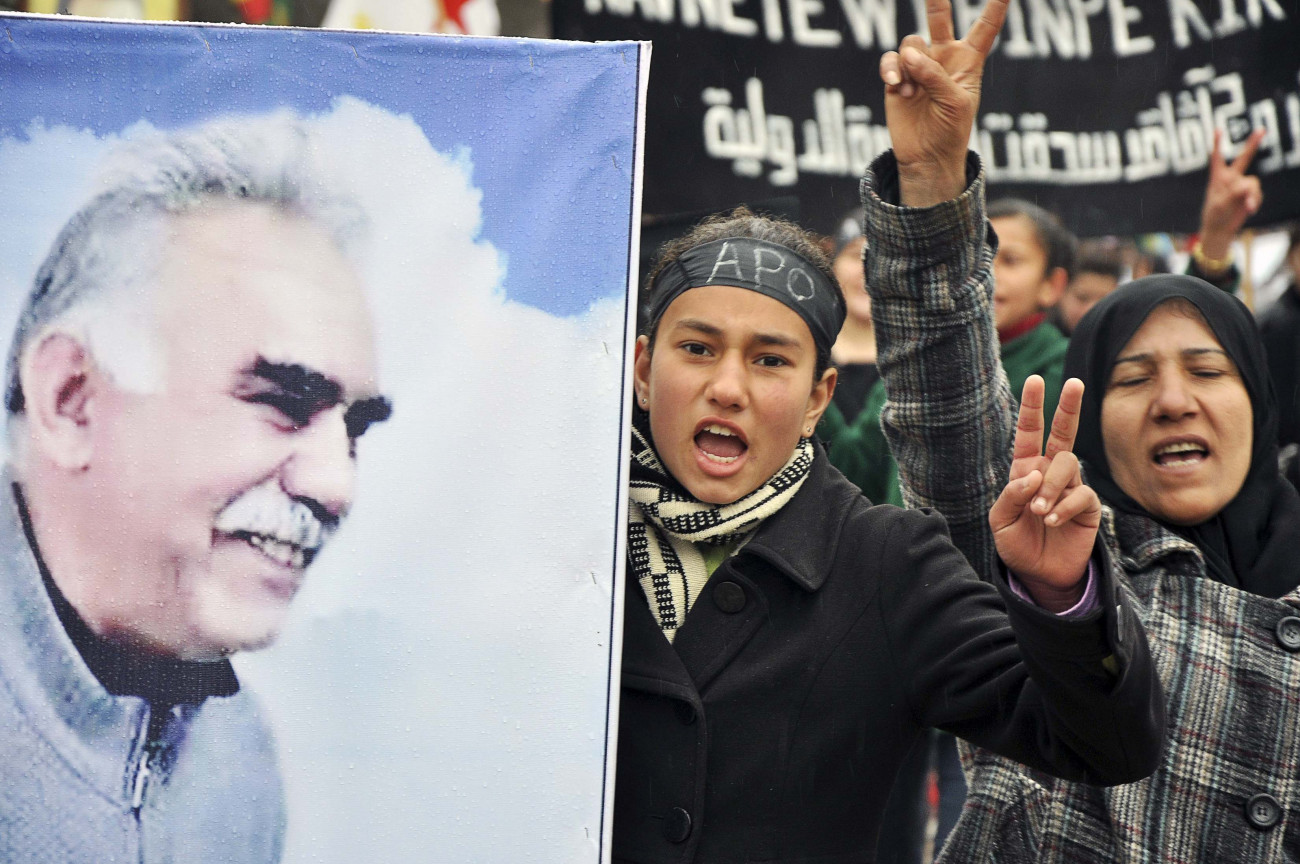ISTANBUL—An imprisoned Kurdish militant leader urged his followers on Thursday to give up their weapons, opening an opportunity to defuse a conflict that has killed tens of thousands of people in recent decades, and destabilized Turkey and the wider Middle East.
Abdullah Öcalan , the leader and founder of the outlawed Kurdistan Workers’ Party, known as the PKK, also called for the group to disband and for its allied factions to disarm after some 40 years of violence.
“All groups must lay down their arms and the PKK must dissolve itself,” Öcalan wrote in a statement penned in the island prison off the coast of Istanbul where he has been held since 1999, when he was captured in Kenya by Turkish intelligence officers.

Note: As of 2002.
Source: CIA
Daniel Kiss/WSJ
The statement, read on his behalf at a news conference in Istanbul after pro-Kurdish officials brought it from the prison, could have far-reaching consequences for Turkey, Syria and the broader region.
The PKK has fought a slow-burning war with the Turkish state, including gun and bomb attacks and years of guerrilla warfare , since the 1980s. The group initially fought for an independent Kurdish state and later demanded greater rights for Kurds, a broad ethnic group of tens of millions of people spread across Turkey, Syria, Iraq and Iran. The PKK has affiliates in all four countries.
In Turkey, an end to the conflict with the PKK could resolve a top security threat and help settle one of the country’s most important political questions after decades in which millions of Kurds have demanded recognition and language rights. Öcalan’s statement is also likely to strengthen President Recep Tayyip Erdogan, who could use Kurdish support to help extend his more than two decades in power.
In Syria, Öcalan’s call, if implemented, could help the country’s fragile transition away from autocratic rule after the fall of the Assad regime in December. Kurdish-led Syrian militias allied with the PKK are among the main obstacles to the new government in Damascus consolidating power after rebels ousted Bashar al-Assad, ending some 14 years of rebellion and war. The militias control a swath of northeastern Syria where some of them are backed by U.S. troops and air power in the campaign against Islamic State extremists.
“The stars seem more aligned than ever to pursue an end to this conflict,” said Berkay Mandıracı, a senior analyst on Turkey with International Crisis Group. “Regionally, colossal shifts in the Middle East create a host of incentives to end this conflict.”
The path to resolving the conflict remains uncertain, with no clear plan in place for a peace process and thousands of PKK-affiliated fighters spread across the region. Much will depend on how Erdogan and the Turkish government choose to respond to Öcalan’s message and whether Kurdish militants comply with the call to disarm.
Thousands of battle-hardened Kurdish fighters across the region would have to be demobilized. Key leaders of PKK affiliates in the region, including a political party linked to the group in Syria, have said in recent weeks they would comply with Öcalan’s message. It is also not clear what, if anything, Turkey has offered in return for the PKK laying down their arms.
The president’s office didn’t immediately respond to a request for comment.
“If the terrorist organization heeds this call, disarms, meets and dissolves itself, Turkey will be free from its shackles,” said Efkan Ala, a lawmaker and vice chairman of Erdogan’s Justice and Development Party.
The conflict has also been a source of friction between Ankara and Washington for a decade, since the Obama administration partnered with some Syrian Kurdish militants in the war against Islamic State.
The PKK is designated as a terrorist group by Turkey and the U.S. Washington in recent years has said it makes a distinction between the PKK and members of its Syrian branch that are partnered with the U.S. military. The Pentagon said in December that the U.S. has about 2,000 troops in Syria.
Turkey has launched a series of military operations in northern Syria aimed at creating a buffer zone between itself and Kurdish militants. In recent years, it has used drones and jet fighters to go on the offensive against the PKK in their stronghold in northern Iraq, where they are also a source of tension with the government in Baghdad and the semiautonomous Kurdistan Regional Government of northern Iraq.
Write to Jared Malsin at jared.malsin@wsj.com



